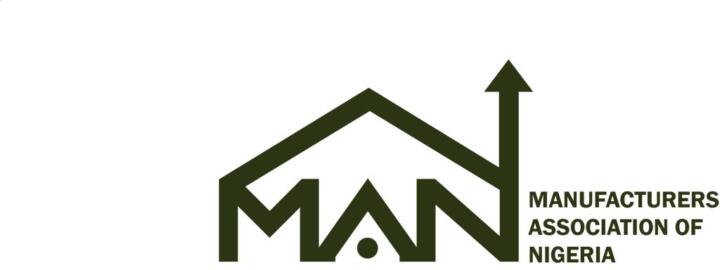Nigeria’s manufacturers have disclosed that they spent an estimated N676 billion on generators within the last six months as prolonged grid failures, poor electricity supply, and rising tariffs continue to cripple industrial productivity. The staggering expenditure reflects the worsening state of Nigeria’s power sector and the growing reliance of businesses on self-generated electricity to keep operations running. Manufacturers say the situation has not only increased their operational costs but also threatened competitiveness, job creation, and long-term growth across various industries.
The latest figures, released by the Manufacturers Association of Nigeria (MAN), show that companies are now spending more on alternative power generation than ever before. Many factories reported that they operate for only a few hours daily on public electricity, forcing them to run diesel or gas-powered generators for the majority of their production cycles. The association said the heavy financial burden of powering factories is one of the major contributors to the rising cost of locally made goods, making them more expensive than imported alternatives.

According to MAN, the N676bn spent in six months marks one of the highest recorded in recent years. The association explained that the incessant grid collapses, load shedding, and unstable voltage have left manufacturers with no option but to rely on self-generation. Many industries, including steel, cement, textiles, and food processing, which require steady power supply for machinery and production lines, have been affected the most. Several manufacturing firms reported that they often run multiple generators daily to maintain productivity, with fuel costs rising in tandem with volatile foreign exchange rates.
The association lamented that the country’s inadequate electricity supply continues to undermine Nigeria’s industrialisation plans. MAN stressed that no country can build a strong manufacturing base without stable and affordable power. The group expressed concern that unless urgent reforms and investments are made in the power sector, Nigeria risks losing more factories to neighbouring countries where electricity is more stable and cost-effective. Some companies have already reduced production hours or shut down certain lines to minimise losses, while others are considering relocating operations to Ghana, Benin Republic, or Côte d’Ivoire, where power costs are significantly lower.
Manufacturers also highlighted the ripple effect of rising generator expenses on the wider economy. They noted that high energy expenses are directly linked to increased prices of goods, reduced production capacity, and shrinking profit margins. When companies spend billions on fueling generators, that cost is eventually passed on to consumers, contributing to inflation. Many businesses that operate in energy-intensive sectors have seen their overheads more than double, forcing them to scale down production or lay off workers. The association warned that if the trend continues, Nigeria could experience further job losses and reduced investment inflow into the manufacturing sector.
The persistent power shortages have also affected small-scale manufacturers and entrepreneurs, many of whom cannot afford large generators or rising fuel prices. Small businesses, including bakeries, welders, fashion designers, and cold-room operators, have reported declining income due to the high cost of powering their equipment. Some have been forced to close shops temporarily or permanently because they cannot sustain the daily costs of electricity generation. The manufacturers’ association said this demonstrates that the power problem affects all tiers of industry and poses a major threat to national economic stability.
Energy experts have weighed in, saying the manufacturers’ N676bn generator expenditure reveals the depth of Nigeria’s electricity crisis. Analysts argue that such a huge investment in self-generation is counterproductive, as it diverts funds that could have been used for expansion, research and development, or job creation. They noted that many factories operate mini-power plants within their premises, a situation they describe as unsustainable for long-term industrial growth. Some experts also warned that reliance on fossil-fuel generators contributes to pollution and contradicts global transition goals aimed at cleaner, more efficient energy sources.
In response to the outcry from manufacturers, the Federal Government has reiterated its commitment to improving power generation and distribution. Officials said efforts are ongoing to complete key electricity projects, including the expansion of transmission lines, reinforcement of substations, and the introduction of renewable energy solutions. However, manufacturers argue that progress has been slow and inconsistent, calling for urgent measures such as accelerated privatisation reforms, tariff reviews tied to service levels, and incentives for companies investing in renewable energy.
Despite these assurances, confidence within the manufacturing sector remains low. Many industry leaders say they have heard similar promises for years without tangible results. They emphasise that the manufacturing sector cannot thrive in an environment where companies spend hundreds of billions on diesel, spare parts, generator maintenance, and fuel storage every few months. According to MAN, the sector needs reliable power more than any other intervention to boost productivity and revive economic growth.
The N676bn generator expenditure serves as a stark reminder of the enormous challenges facing Nigeria’s manufacturing sector. With electricity supply still far below demand, manufacturers say immediate reforms, major investments, and strict accountability measures are needed to rescue the sector. Until the power crisis is resolved, industrial productivity will continue to suffer, costs will keep rising, and Nigeria may struggle to compete globally in the manufacturing landscape.
Support InfoStride News' Credible Journalism: Only credible journalism can guarantee a fair, accountable and transparent society, including democracy and government. It involves a lot of efforts and money. We need your support. Click here to Donate
